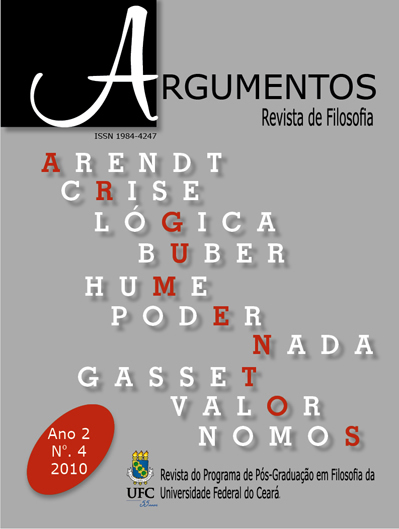The status of imagination in Hume's theory of passions
Keywords:
Imagination. Passions. Philosophy.Abstract
A more attentive reading of the pages that compose books II and III of the Treatise of human nature disclose innumerable instinctive processes of the imagination operating freely in the production of good part of our passions. They could be reduced to the imaginative propensity of transfigure, in some way, the experience. It ́s what takes place, for example, when we anticipate regularities observed between the phenomena and conceive a bigger regularity that the evidenced in past observations. This betrayal of the experience for the imagination will reflect in the production of some affections. In the truth, there would not be only the possibility of the conjugation of the imaginative processes with the production of intense passions, but also of linking of these ones with the production of the calm passions, although the humean ́s theory of the passions seem, for times, to privilege “the negative” aspect of the imagination, front to the “positive” sanctioned by the understanding.Downloads
Published
Issue
Section
License
Argumentos magazine is licensed under an International Creative Commons Attribution License.
The Magazine uses CC BY inclusion
1) The authors retain the copyright granted to the magazine or the right to initial publication, with the work regularly licensed under the Creative Commons Attribution, which allows the sharing of the work with acknowledgment of authorship and initial publication in this magazine.
2) The authors are authorized to contract additional applicable contracts, for non-exclusive distribution of the version of the work published in this journal (for example, publication in the institutional repository or as a chapter of the book), recognition of authorship and initial publication in this journal.
3) Authors are authorized and encourage to publish and distribute their work online (for example, in institutional repositories or on their personal pages) at any time before or during the editorial process, as they can generate productive changes, as well as increase the impact and reference of published work.




.jpg)










._._3.png)
1.jpg)
._._._.png)
